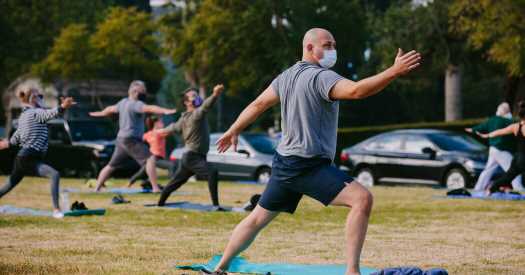Fully vaccinated Americans can have small gatherings indoors with other vaccinated people but need to wear masks in public, the C.D.C. says.

By Roni Caryn Rabin
The Centers for Disease Control and Prevention on Monday issued long-awaited guidance to Americans fully vaccinated against Covid-19, freeing them to take some liberties that the unvaccinated should not, including gathering indoors with others who are fully vaccinated without precautions while still adhering to masking and distancing in public spaces.
The agency offered good news to grandparents who have refrained from seeing children and grandchildren for the past year, saying that fully vaccinated people may visit indoors with unvaccinated people from a single household so long as no one among the unvaccinated is at risk for severe disease if infected with the coronavirus.
That means fully vaccinated grandparents may visit unvaccinated healthy adult children and healthy grandchildren without masks or physical distancing. But the visit should be limited to one household: If the adult children’s unvaccinated neighbors drop by, the visit should move outdoors and everyone should wear masks and distance.
The recommendations arrived as state officials move to reopen businesses and schools amid a drop in virus cases and deaths. Federal health officials repeatedly have warned against loosening restrictions too quickly, including lifting mask mandates, fearing that the moves may set the stage for a fourth surge of infections and deaths.
The new advice is couched in caveats and leaves room for amendments as new data become available. The agency did not rule out the possibility that fully vaccinated individuals might develop asymptomatic infections and spread the virus inadvertently to others, and urged those who are vaccinated to continue practicing certain precautions.
Agency officials encouraged people to get vaccinated with the first vaccine available to them, to help bring the pandemic to a close and resume normal life. The agency emphasized that vaccines are highly effective at preventing “serious Covid-19 illness, hospitalization and death,” and said its guidance “represents a first step toward returning to everyday activities in or communities.”
Source: Read Full Article

